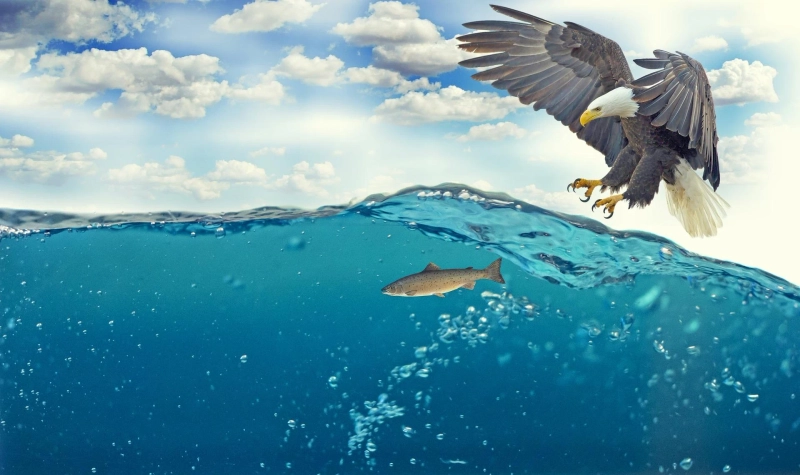Illegal fishing is a huge problem for countries all over the world. This destructive activity not only hurts the environment, but it also costs governments and taxpayers billions of dollars every year. In this article, we will discuss ways that countries can put a stop to illegal fishing. We will explain what illegal fishing is and its negative effects on both the environment and the economy. We will also provide examples of successful anti-illegal fishing campaigns from around the world and how to purchase fish from quality seafood exporters in Sri Lanka.
What is illegal fishing, and why is it a problem for countries around the world?
Illegal fishing is the act of fishing in a protected area or fishing without the proper permits and licenses. It is a huge problem for countries all over the world. This destructive activity not only hurts the environment, but it also costs governments and taxpayers billions of dollars every year.
Illegal fishing can take many different forms. Some fishermen might operate illegally by crossing borders to fish in other countries’ waters. Others might use illegal methods like dynamite or cyanide to catch fish. And still others might sell their catch on the black market, outside of the legal seafood trade system.
Illegal fishing is a problem for several reasons.
First, it harms the environment. Illegal fishermen often damage coral reefs and seagrass beds while searching for prey, and this causes long-term damage that can be difficult to repair.Second, it hurts legitimate fishermen. When illegal fishing occurs in an area, it drives down the price of fish for everyone. This is bad news for the people who make their living from fishing and also threatens the livelihoods of coastal communities that depend on a healthy ocean.Third, illegal fishing is costly to governments and taxpayers. The Coast Guard spends millions of dollars every year trying to police our waters and stop illegal fishermen. Customs officials have to track seafood imports and exports to make sure they are legal, which takes time and resources. And all these costs taxpayers billions of dollars annually.
What are some of the techniques used by illegal fishers to avoid detection and capture?
Illegal fishing techniques used by certain fishermen and illegal fish processing companies include such things as:
Using banned or unauthorised gear, such as driftnetsFishing in protected areasUsing false documents or fishing without a licenceIllegal dumping of catch at sea to avoid detectionSmuggling caught into other countries
All these techniques put coastal communities and the environment at risk, while also costing governments billions of dollars annually. To help address this problem, we need better enforcement tools and greater cooperation between nations.
How can countries put measures in place to stop illegal fishing from taking place within their waters?
The Coast Guard employs many tactics to try to stop illegal fishing. These include:
Patrols of coastal waters by ships and aircraftSurveillance of suspected illegal fishing activity from satellitesCollaboration with other government agencies, such as Customs and Border ProtectionEnforcement of fishing regulationsInvestigation of illegal fishing incidentsTo effectively combat illegal fishing, countries need to have a robust monitoring and enforcement system in place. This includes establishing patrol zones, conducting surveillance, and investigating any illegal activity that is spotted. Countries also need to work together to share information and coordinate patrols. By collaborating with other nations, we can create a strong global network that can help stop illegal fishing from happening.
What are some of the challenges that countries face when trying to stop illegal fishing activity?
While countries are trying to combat this problem, they are not without challenges. One of the biggest difficulties is that illegal fishing often happens in international waters, which fall outside of any one country’s jurisdiction. This means that countries must cooperate with each other in order to be effective. Another challenge is that many illegal fishing activities are carried out by sophisticated criminal networks, which makes it difficult to track and prosecute them.
What are some possible solutions to the problem of illegal fishing, both short-term and long-term?
Solutions to these problems are being found and implemented every day, and these include both long-term and short-term solutions.
Some of the short-term solutions include:
Better patrolling and monitoring of coastal areas and oceanic zones by authoritiesWorking with fishermen to help them understand the regulations and transition to legal fishing practisesusing technology, such as satellites and drones, to track illegal fishing activities.
Long-term solutions are also being developed and include:
It creates sustainable management plans for fisheries that take into account environmental concerns as well as socio-economic needs.We should encourage the development of aquaculture (fish farming) instead of wild-capture fisheries.promoting trade agreements that include provisions on illegal fishing and imposing sanctions on countries that do not comply with these agreements.To share information and track networks involved in this trade, law enforcement agencies must develop better international cooperation among law enforcement agencies.working with the private sector to increase transparency in seafood supply chains.We are investing in research and innovation to find new technologies that can help us better monitor, detect and prevent illegal fishing.
Illegal fishing is a major problem for the world’s oceans. It destroys marine habitats, depletes fish stocks, and costs fish export companies in Sri Lanka and elsewhere billions of dollars every year. Countries need to take action to stop this destructive activity from happening. By establishing patrol zones, conducting surveillance, and investigating illegal activity, we can make a dent in the global fight against illegal fishing. With cooperation from other nations, we can once and for all put a stop to illegal fishing.
0


